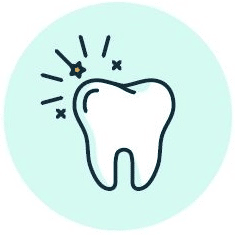Summer is here! While many are grateful for the warm weather, the sunshine, and the opportunity to play outside, it’s important to keep self-care and health in mind for a balanced and fun-filled summer.
Self-care in the summer encompasses several different areas:
Sun Protection
- Use Sunscreen: Apply a broad-spectrum sunscreen with an SPF of 30 or higher to all exposed skin, even on cloudy days. Reapply every two hours, or more often if swimming or sweating.
- Wear Protective Clothing: Long-sleeved shirts, wide-brimmed hats, and UV-blocking sunglasses can significantly reduce sun exposure. Look for clothing labeled with an Ultraviolet Protection Factor (UPF).
- Seek Shade: The sun’s rays are strongest between 10 a.m. and 4 p.m. Stay in the shade during these hours whenever possible. Use umbrellas, trees, or shelters to minimize direct sun exposure.
Staying Hydrated
- Drink Plenty of Water: Aim to drink at least eight 8-ounce glasses of water daily, and more if you are active or spending time in the heat. Carry a reusable water bottle to make it easier to stay hydrated.
- Avoid Sugary and Alcoholic Beverages: These can lead to dehydration. Opt for water, herbal teas, or beverages with added electrolytes.
- Eat Hydrating Foods: Fruits and vegetables like watermelon, cucumbers, oranges, and strawberries have high water content and can help keep you hydrated.
Staying Safe in the Heat
- Know the Signs of Heat-Related Illness: Symptoms include heavy sweating, weakness, dizziness, nausea, headache, and fainting. Seek medical attention if you or someone else exhibits these signs. Older adults, children and pets are at higher risk of experiencing heat related illness.
- Plan Outdoor Activities: Schedule strenuous activities for the cooler parts of the day, such as early morning or evening. Take frequent breaks in the shade or indoors. Keep in mind that dogs are hotter than you, and should be exercised at cooler hours of the day, with lots of water breaks.
- Use Fans and Air Conditioning: Stay cool by using fans, air conditioning, or cool showers. If you don’t have air conditioning, visit public places like shopping malls or libraries.
- Do not leave children or pets unattended in the outdoors, or in the car. No amount of time in a vehicle is safe for children or pets without proper air conditioning and supervision. Heat stroke can occur quickly, and after just 20 minutes on an 80-degree day, the CDC says the inside of a car can hit 109 degrees Fahrenheit. After 40 minutes, it hits 118 degrees, and after an hour, it can hit 123 degrees.
- Hot days have also been associated with worse pregnancy and birth outcomes, and more emergency department visits and hospitalizations for many reasons, such as for heat-illness, cardiovascular and respiratory diseases, asthma, diabetes, kidney diseases, mental health conditions, and injuries, including injuries at work. https://www.cdc.gov/heat-health/about-heat-and-your-health.html
Bug Safety
- Protect yourself from ticks, mosquitoes and other bugs by wearing insect repellent spray, such as DEET, oil of lemon eucalyptus, para-menthane-diol, or2-undecanone (plant derived). In Colorado, mosquitoes can carry West Nile Virus, and ticks can carry many different diseases.
- Wear Permethrin treated clothing, gaiters or gear. Permethrin is an insecticide that can be safely applied to clothing or outdoor gear. It should never be applied to skin!
- Stay on the center hiking trails. Avoid walking through high grass and bushy areas. Avoid sitting on logs or against trees. Use a blanket or tarp to avoid sitting directly on the ground when resting or picnicking.
- Conduct Tick Checks! Check yourself, your children and your pets for ticks often while participating in outdoor activities. Check carefully along the hairline, nape of neck, inside and behind the ears, armpits, and groin area, behind the knees, inside belly button and between your toes. Learn more at coloradoticks.org
River/Water Safety
- Wear a Life Jacket: Always wear a life jacket when swimming, boating, or participating in any water-related activities on rivers or lakes, even if the water appears calm. In 90% of all water related deaths, life jackets were not worn.
- Always raft with guides, or with other experienced rafters. Check the water levels before you go at https://www.arkansasriveroutfitters.org/water-report/. If high water is reported, know the risks you are taking, and consider waiting until water levels drop to raft.
- Never Swim Alone: Always swim with a buddy and let someone know your plans. Keep an eye on children at all times, as rivers can be unpredictable. Avoid swimming in fast-moving water or near rapids.
- Know Your Limits: Be honest about your swimming abilities. Don’t venture into deeper or faster water if you’re not a strong swimmer.
- Know your risk: In 2023, Colorado had 32 water-related deaths, according to Colorado Parks and Wildlife. In 2022, a record 42 people died in water-related incidents, nearly double from the 22 deaths in 2021. In 2020, there were 34 deaths.
Partaking in Alcohol Safely
- Drink in Moderation: Limit alcohol consumption and be mindful of its effects, especially in the heat, and if you are visiting from lower altitude. Alcohol can impair judgment and increase the risk of heat-related illnesses, as well as river related injuries and death.
- Stay Hydrated: For every alcoholic drink, have a glass of water. This helps prevent dehydration and keeps you aware of how much you’re consuming.
- Never Drink and Swim: Alcohol impairs your ability to swim and increases the risk of drowning. Stay out of the water if you’ve been drinking.
- Plan Ahead for Transportation: If you plan to drink, arrange for a designated driver or use ride-sharing services. Never drink and drive.
Mental Health
- Often we think the summer sun will melt the blues away, but that’s not always the case, and caring for your mental health is just as important in the summer months as the winter ones. Take advantage of the longer days and warmer weather to spend time outdoors, as sunlight and physical activity can boost your mood and reduce anxiety.
- Maintain a healthy sleep schedule despite the extended daylight, as consistent rest is crucial for mental well-being.
- Stay hydrated and eat a balanced diet to support overall health, and practice mindfulness or meditation to stay grounded.
- Stay connected with friends and family, as social interactions can provide emotional support and enhance your sense of belonging.
- Consider talking to a professional to maintain mental health: learn more at https://solvistahealth.org/
- Learn about additional resources through the Chaffee Resources website.




